- Home
- Robert Goddard
Hand In Glove - Retail Page 7
Hand In Glove - Retail Read online
Page 7
After leaving Oxford, Tristram lived for a year in London with assorted friends, writing sporadic but unpublished verse. He continued to accept a generous allowance from his father, who cherished the hope that he would eventually return home and take over the reins at Abberley & Timmins.
In the summer of 1930, Tristram embarked on a European tour to which his father had agreed only as prelude to his settling down to some kind of career. At Joseph Abberley’s insistence, Beatrix accompanied her brother. In the course of the next year, they visited nearly every country in Europe, including Russia, Germany, Italy, France – and Spain. Tristram’s exposure to the widespread economic distress they saw, coupled with a rosy-hued view of Stalin and an aversion to Mussolini, completed his conversion to socialism, though it was never to extend to a formal acceptance of Communism. What was to emerge from the rash of poems inspired by the tour was a coolly controlled anger at the abuse of political and economic power coupled with a keen sympathy for the underdog. Tristram Abberley struck many of those who met him in the early thirties as a witty, pleasure-loving young man, but beneath this image – as the poems proved – a robust and articulate mind was at work, analysing humanity on a grand as well as a minor scale. Yet he seemed also to crave personal involvement in the events of the day, a craving rooted, as McKitrick saw it, in his presence in Madrid at the time of the anti-monarchist riots of May 1931, when he became convinced that only concerted action by the common people could achieve genuine political change.
Back in England in the autumn of 1931, Tristram at last complied with his father’s wishes and accepted a junior managerial position at Abberley & Timmins. It was a disastrous move. Within a few months, he had put his socialist principles into practice by encouraging the workforce to resist a pay cut. A complete rift between father and son ensued. Tristram was dismissed and his allowance cancelled. Beatrix sided with her brother and was similarly disowned. They moved to London and lived together in straitened circumstances, Tristram scraping along as a journalist with various left-wing weeklies.
Tristram’s first collection of verse, The Brow of the Hill, was published in October 1932. Although it made little impact at the time, it contained what McKitrick categorized as his best and most heart-felt poems, including the frequently anthologized ‘False Gods’.
The sudden death of Joseph Abberley early in 1933 transformed his children’s finances. Tristram was able to abandon journalism and take up a free and easy existence in London society, whilst Beatrix left London to settle in Rye. Brother and sister drifted apart from then on and, at this point in the book, McKitrick was obliged to resort to more varied sources of opinion about his subject’s development.
The general view was that Tristram was a hedonist with an uneasy conscience. The wealth he had inherited from his father enabled him to lead an extravagant and irresponsible life, indulging his enthusiasm for travel, fast cars and beautiful women. The poems he wrote served to assuage the guilt he felt at such activities. And all the while a basic inclination towards socialism, apparent in his verse if not in his behaviour, ensured that he could not ignore the problems of the age.
After spending much of 1934 in the United States, he returned to England to put the finishing touches to his second collection of verse, The Other Side, published in the spring of 1935. This collection met with widespread critical approval, even though, in McKitrick’s judgement, the poems generally failed to match the originality and immediacy of his earlier work.
That spring also saw his engagement to Mary Brereton, a twenty-one-year-old secretary at his publisher’s offices, a girl far removed from the female company he had lately been keeping. Her description of their courtship, as recorded by McKitrick, conjured up a strangely simple image of the poet: loyal, generous and more contented than the nature of his verse suggested. They married in September 1935 and, for a while, Tristram filled the role of doting husband as easily as he had that of the freethinking socialite.
When the Spanish Civil War broke out in July 1936, he seemed at first reluctant to become involved. By the autumn, the International Brigades had begun recruiting volunteers to fight for the Republican cause, but he made no move to join them. He expressed his support for the Republic when the periodical Left Review conducted a poll of English writers, but that was as far as he went. McKitrick attributed his reticence to domestic considerations. He had a young and by now pregnant wife to support, along with her orphaned brother. They had to come first. And, since he could give no practical assistance to the cause, he decided to refrain from empty rhetoric on its behalf.
As the Civil War continued, and the Republic’s plight worsened, Tristram’s inaction began to gnaw at his conscience. The conflict between the Republic and Franco’s Nationalists distilled for him, as for many others, the conflicts of a whole decade. It was a heaven-sent opportunity to take a stand in defence of his principles. The birth of his son, Maurice, in March 1937, freed him of at least one domestic preoccupation and in July he accepted an invitation to attend an International Writers’ Congress in Spain. He set off claiming that he wished merely to discuss intellectual attitudes to the war, but McKitrick contended that he had already resolved to take an active part in the hostilities. A desire to emulate his dead brother’s heroism and to recapture the exhilaration he had felt during the riots in Madrid six years before combined to override all reservations. When the congress ended, he did not return home.
The first Mary Abberley knew of her husband’s decision to fight was when she received a letter from him announcing his acceptance of a commission in the British Battalion of the Fifteenth International Brigade. She was horrified. But she would have been even more horrified had she realized she would never see him again.
Tristram committed himself to the Republican cause just as others were beginning to abandon it. By the summer of 1937, the International Brigades were a weary and disillusioned force, with most of their best and brightest recruits killed in earlier fighting. But, to those who recollected his arrival for McKitrick’s benefit, Tristram Abberley had come as living proof that all was not lost. They spoke of his energy and his generosity, his contagious belief in the justice of their struggle, his ability to restore a sense of purpose even to the most disaffected. The final and most contradictory of all the phases of his life – that of the selfless warrior – had begun.
But it was not to last long. Lieutenant Tristram Abberley first saw action – and distinguished himself by his bravery – on the Fuentes del Ebro front in October 1937. Then, in January 1938, his battalion was called in to the gruelling Battle of Teruel. He suffered a serious leg-wound during a rifle engagement outside the city on 20 January and was subsequently evacuated to hospital in Tarragona. Amputation was not considered necessary and he appeared to be well on the road to recovery when a blood infection set in. He died on 27 March 1938 and was buried in Tarragona the following day.
Tristram Abberley’s career as a poet did not end with his death. Indeed, in many respects, it was only then in its infancy. His experiences in Spain had prompted a last outpouring of verse, sent back to his widow among his personal effects and not published until 1952, when it emerged under the title Spanish Lines. This revived interest in the whole body of his work, which during the ’fifties and especially the ’sixties grew steadily in popularity and esteem. By the time of McKitrick’s research for his book in the mid-seventies, he was regarded as one of the most significant English poets of his generation.
Wisely, McKitrick did not attempt to reconcile the conflicting aspects of his subject’s life and personality. The poems, he thought, were what would ultimately be remembered about Tristram Abberley. Though the biographer could explain how they had come about, he could not penetrate to the secret of why.
Derek’s despondency deepened as he neared the conclusion of the book. He had hoped, for no good reason, that something – anything – in the life and death of Tristram Abberley would come to his rescue. Instead, he was left as empty-handed as he ha
d feared he would be. The Beatrix, Mary and Maurice he had read about might as well have been different people for all the insight he had gained into their more recent lives. If there was a secret buried in their collective past that explained what had happened, it was not to be found in the words and actions of a long-dead poet. If it was to be found at all, Derek would have to look elsewhere. But in what direction he did not know. He had been running towards a dead end all along. And now he had arrived.
10
EIGHT DAYS HAD passed since Beatrix’s funeral when Charlotte decided she could postpone a visit to Jackdaw Cottage no longer. On a cool breezy morning, she drove down to Rye, collected the key from Mrs Mentiply and entered what was now her property but still seemed indelibly to belong to another.
Thanks to Mrs Mentiply, the cottage was spotlessly clean. It was as if she regarded her bequest as a retainer and meant to discharge her duties more assiduously after her employer’s death than before. The effect was to suggest Beatrix had merely gone away for a few days. All was as she might expect to find it when she returned. Except that she would not return.
Listlessly, Charlotte wandered from room to room, reliving in jumbled order her visits down the years. In her memory of them, she fluctuated between childhood and her present age, but Beatrix never varied. Always she was the same: kindly but not indulgent, generous but not playful. She had treated Charlotte as an adult long before she was one and retained to the end an independence of mind which some found disconcerting but which Charlotte had come more and more to admire.
But an end had come to all that and to preserve Jackdaw Cottage as some kind of museum was surely not what Beatrix would have wanted. As she gazed from the window of what had often been her room out across the small patch of garden towards the sea, Charlotte knew that the wisest solution was the swiftest: sell up and have done.
Yet Beatrix would surely also have wanted her to have a memento of their times together, something that would remind her of her godmother whenever her eye fell upon it. Ironically, she would have chosen one of the smaller pieces of Tunbridge Ware, but they lay bagged and labelled in a police station basement, awaiting Colin Fairfax’s trial. The only remaining item of Tunbridge Ware was the work-table in the drawing room and, as soon as Charlotte had thought of it, she realized how appropriate it would be, since it combined practicality and elegance in a manner close to Beatrix’s heart.
Without further ado, she carried it out to her car, went back for some blankets to wrap it in for the journey, then briskly took her leave. Tomorrow she would contact an estate agent and put the sale of Jackdaw Cottage in hand. Tomorrow nostalgia would be cast aside.
‘So, what you’re telling me,’ said Colin, ‘is that you’ve drawn a complete blank.’
‘Yes,’ Derek replied, averting his gaze towards the bare wall of the visiting room. ‘I’m afraid I have.’
‘The family have nothing to say?’
‘Not to anybody associated with you.’
‘And there are no clues to be found in Tristram Abberley’s biography?’
‘None. Read it yourself and see.’
‘I intend to.’
They eyed each other warily for a moment, Derek sensing the silent accusation of failure that hung between them. Colin would think he had lost his nerve, misplayed his hand, blown his chance. And the worst of it was that he would be right.
‘Where do we go from here?’
‘I don’t know.’
‘Well, I do. At least, I know where I go. Down for a long stretch. Dredge keeps pushing me to do some kind of deal with the police. And I would if I could. But I can’t. They all think I’m holding out on them. They mean to make me suffer for that. And suffering isn’t my favourite occupation. But it seems I may have to get used to it.’
‘I’m sorry, Colin. If there was anything—’
‘Find something!’ Colin nearly shouted the words, drawing a sharp glance from the warder. ‘Just keep trying, brother,’ he murmured through a fixed grin. ‘You’re my only hope.’
At Ockham House, Charlotte was in the process of selecting a suitable place for Beatrix’s work-table when the telephone rang. It was Ursula.
‘Hello, Charlie. Maurice asked me to call you.’
‘Really? I thought he was still in New York.’
‘He is. But we spoke last night. He wanted me to find out if you could have lunch with us next Sunday.’
‘Next Sunday? Well, yes, I’d be delighted. But ….’
‘Is there some problem?’
‘No. No problem at all. I’m just surprised Maurice should make a transatlantic phone call simply to invite me to lunch.’
‘Well, it appears he’s bringing somebody back with him from New York who wants to meet you, so he asked me to make sure you were free.’
‘To meet me? Who is this person?’
‘I don’t know. Maurice wouldn’t say. “Very keen to make your acquaintance.” That’s all I know. A secret admirer, perhaps.’
‘In New York? I hardly think so.’
‘I shouldn’t be too sure.’
‘You know who it is, don’t you?’
‘Absolutely not. Guides’ honour. Anyway, the mystery will be solved on Sunday. You will come, won’t you?’
‘Don’t worry. I’ll be there. With an incentive like that, how could I stay away?’
11
THE FORCED JOLLITY of a midsummer Sunday lay in wait for Charlotte throughout her journey to Bourne End. Every pub car park was full, every picnic-spot clamorous with children and dogs. Why she should be forever excluded from the communal pleasures of humanity at play she did not know. Sometimes she was glad to be excluded. Sometimes she suspected it was an insult devised by the world for her and nobody else. And sometimes she simply did not care.
The Thames was clogged and noisy with craft of all description. Charlotte crossed it at Cookham and turned, with some relief, into the unmarked road that led to an exclusive handful of riverside residences, among them Swans’ Meadow.
It was a house, she often thought, ideally suited to its owner’s personality. Visible from the other side of the river and therefore an object of admiration, it was also aloof and secluded. Though large and lavishly appointed, it did not flaunt its architectural wares, but blended discreetly into the affluent landscape behind weeping willows and well-clipped hedges. Maurice had bought it twenty-one years ago as a glamorous new home for his glamorous new wife and he remained conspicuously proud of both acquisitions, as eager to protect them as he was to be envied on their account.
Aliki, the Cypriot au pair, answered the door and directed Charlotte to the garden, where the family – and their mysterious guest – were relaxing while she prepared lunch.
They were sitting on canvas chairs beneath a silver birch tree, with a tray of drinks standing on a table close at hand. Behind them the lawn, its flower-borders awash with colour, stretched to the bank of the river, where the weeping willows stirred serenely in a gentle breeze. Maurice, a smiling figure in panama and cravat, waved to Charlotte as she approached. To his right sat Ursula in a polka-dot dress, coolly remote behind dark glasses and cigarette smoke. Next to her, just outside the shadow of the trees, sat Samantha, stretching her legs and holding an iced glass against her cheek as she absorbed the heat of the sun. She was wearing an abbreviated pink swimsuit and an expression of calculated languor. To Maurice’s left sat their guest, enjoying – as Charlotte felt sure he was intended to – a spectacular view of Samantha’s bronzed and shapely limbs. He was square-shouldered, with a shock of dark hair and a beard, informally dressed in a pale green shirt and trousers. He rose as she drew near, shot her a flashing smile and extended his hand.
‘Hi. My name’s Emerson McKitrick.’ He spoke in a subdued American accent and by the time she had released his hand, Charlotte had realized who he was.
‘Tristram Abberley’s biographer.’
‘The very same. We never did meet while I was researching the book, did we?’
‘No, we didn’t.’ It was twelve years ago – whilst Charlotte had been away on an ill-fated holiday in the Greek islands – that McKitrick had interviewed her mother. She had spoken afterwards of a polite and good-looking young man and Charlotte could see that this had been a considerable understatement. ‘What an unexpected pleasure, Mr McKitrick.’
‘It’s Doctor McKitrick, Charlie,’ put in Maurice.
‘Oh, I—’
‘So why don’t you call me Emerson and solve the problem that way?’
‘Sit down and have a drink, Charlie,’ said Ursula. ‘We’ve left a chair for you – and a glass.’
Charlotte found herself seated next to McKitrick, aware that she was blushing for no good reason. ‘What … er … What brings you here … Emerson?’
‘Research. Same as last time.’ He did have a winning smile. There was no question about it. And enough laughter-lines at the edges of his eyes to suggest he was no dry and cloistered academic. But he was altogether too tanned and muscular for that to be plausible anyway. Charlotte caught herself guessing his age and settled on forty. ‘My teaching schedule at Harvard means this is about the only time of year I can get away.’
‘And what are you researching?’
‘Something I’m kind of hoping you can help me with.’
‘Me?’
‘That’s right. You in particular.’
‘While Emerson explains,’ said Ursula, ‘I really must go and see how Aliki’s coping in the kitchen.’ She rose and smiled at McKitrick. ‘Do excuse me.’

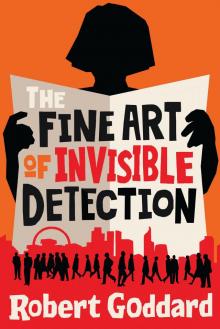 The Fine Art of Invisible Detection
The Fine Art of Invisible Detection One False Move
One False Move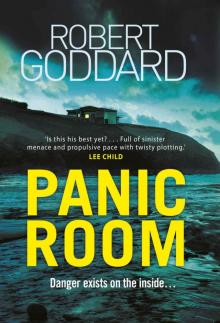 Panic Room
Panic Room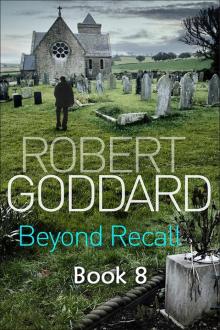 Beyond Recall
Beyond Recall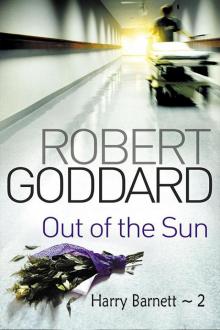 Out of the Sun
Out of the Sun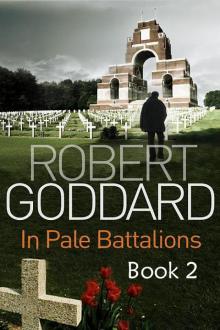 In Pale Battalions - Retail
In Pale Battalions - Retail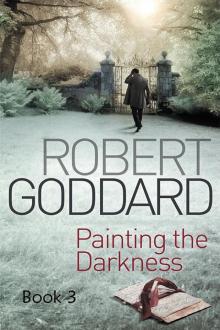 Painting The Darkness - Retail
Painting The Darkness - Retail The Corners of the Globe
The Corners of the Globe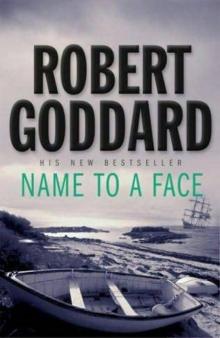 Name To a Face
Name To a Face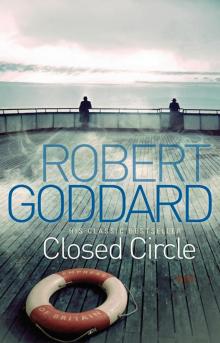 Closed Circle
Closed Circle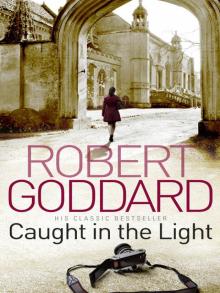 Caught In the Light
Caught In the Light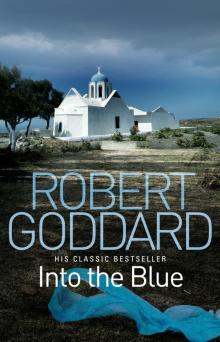 Into the Blue
Into the Blue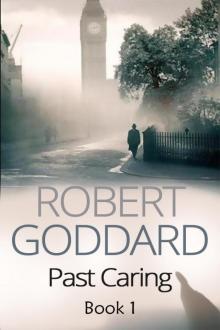 Past Caring - Retail
Past Caring - Retail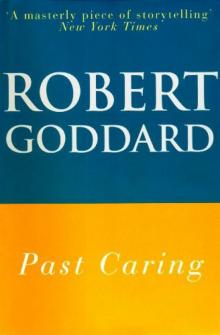 Past Caring
Past Caring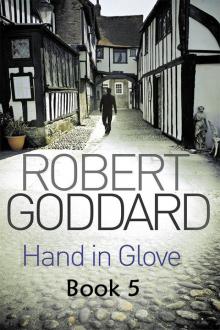 Hand In Glove - Retail
Hand In Glove - Retail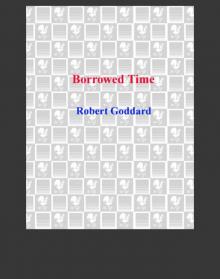 Borrowed Time
Borrowed Time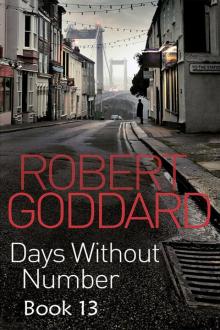 Days Without Number
Days Without Number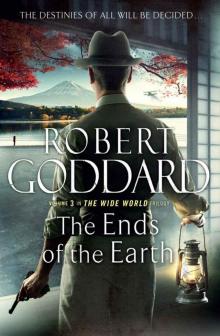 James Maxted 03 The Ends of the Earth
James Maxted 03 The Ends of the Earth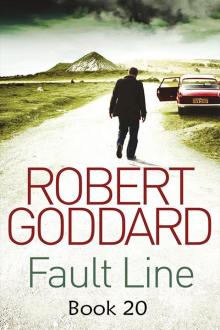 Fault Line - Retail
Fault Line - Retail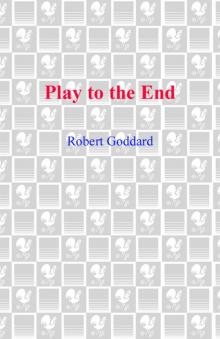 Play to the End
Play to the End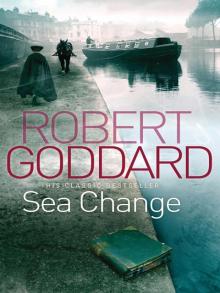 Sea Change
Sea Change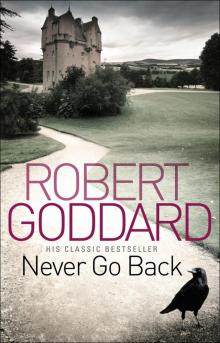 Never Go Back
Never Go Back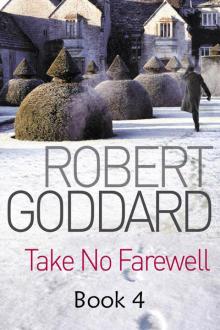 Take No Farewell - Retail
Take No Farewell - Retail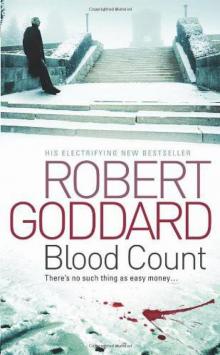 Blood Count
Blood Count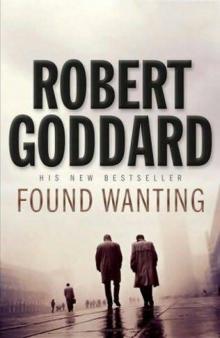 Found Wanting
Found Wanting Sight Unseen
Sight Unseen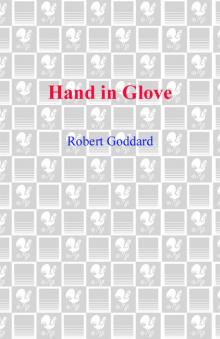 Hand in Glove
Hand in Glove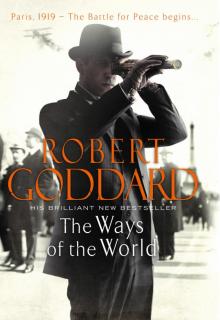 The Ways of the World
The Ways of the World